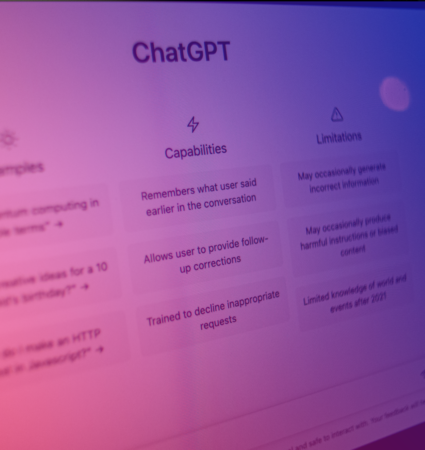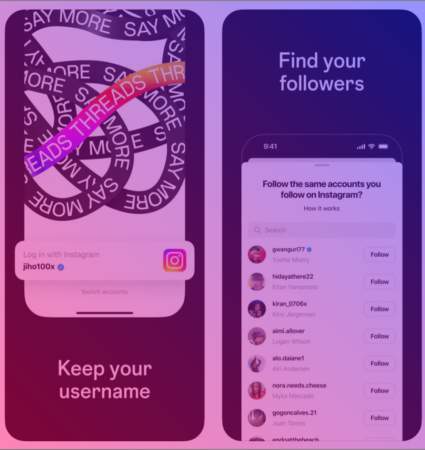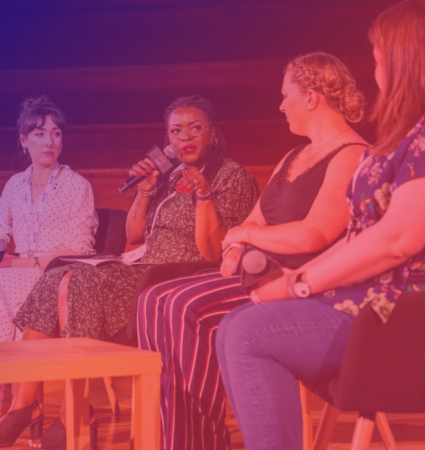Google’s ‘Magi’ project has once again brought the topic of AI, and its influence on search, under the spotlight. But does this latest development really change anything?
What is Google Magi?
Google is reportedly working on a new AI-powered search engine in response to the threat posed by ChatGPT from Microsoft’s OpenAI division, which has rapidly acquired 100m+ users and is already being incorporated into its Bing search engine.
A report in the New York Times described the new technology – going by the project name Magi – as a ‘radical’ development which will deliver a far more personalised experience by ‘anticipating’ users’ needs.
Details about Magi are scant, but the NYT quoted Google spokeswoman Lara Levin as saying more details would be shared ‘soon’.
What does Google Magi mean for search marketing?
![]()
The short answer to that is ‘no one really knows yet’. But that’s not stopped wild speculation about the demise of search as we know it and much flapping of heads from self-proclaimed AI experts. But it’ll come as absolutely no surprise to savvy search marketers who’ve been keeping their fingers on the AI pulse over the past weeks, months and years.
It was Google themselves who developed generative pre-trained transformer technology in 2017, which our own Chief AI Officer Vincent Spruyt (an actual professor) wrote about recently.
But Google’s flirtation with AI hasn’t all been smooth sailing – a recent video promoting its Bard AI technology included an error which knocked $100 billion dollars off Alphabet’s share price in a day.
Let’s be real – AI in search isn’t coming, it’s already here and it’s already changed the game. Magi merely represents the next step in that evolution and, as ever, search marketers and smart brands will need to adapt and evolve, as they always do.
How will AI change search?
It’s true that AI has the potential to change the face of search as we know it even further. Powerful natural language models such as ChatGPT are already transforming search engines’ understanding of user intent. And for the first time, that understanding of intent could be truly personalised – not showing users what most people who search for a thing want and need, but showing individual users what they most likely want and need, based on an understanding of previous searches, follow-ups and behaviour.
This ability to provide true personalisation right the way through the customer journey – from exploration to purchase and loyalty – could not only change the way search engines work, but also fundamentally shift how people behave.
By spotting patterns in behaviour, search history and preferences, there’s a real chance the search experience will become better than ever. But doing that will require rather a lot of personal data to be captured, collected and analysed – something which may prove challenging for the search engines in profound ways.
Is Magi and AI-powered search definitely the future?

If there’s one thing that can defeat an army of machines which can think for themselves, it’s an army of grey suit-wearing bureaucrats. GDPR and other privacy regulations around the world have already had a seismic impact on digital marketing, and there’s no suggestion that AI will be spared from regulatory scrutiny – the suits just don’t move as fast. Italy banned ChatGPT in April, and governments around the world are scrambling to understand how they should respond to the latest rapid developments. As ever, the most likely outcome is a compromise, with AI’s onward march steered and shaped by privacy-driven regulation.
Will Magi and AI search stop people clicking through to websites?
While it’s too early to say categorically, it’s worth remembering why search engines exist:
- To deliver an incredible experience to users
- To make money
And not necessarily in that order.
It is fundamentally in the interest of every search engine to drive traffic to other sites. Not only is it critical to their business models, it’s also a tenet of the unwritten code between search engines and the open web. As Microsoft CEO Saya Nadella put it: “Our bots are not going to be allowed to crawl search if we are not driving traffic.”
In other words, if search engines suddenly stop driving traffic to sites, site owners are highly likely to cut off the one thing Ais need to function – access to huge volumes of information.
More likely, is that Google, Microsoft and other potential new market entrants will find ways to balance in-search engagement and driving traffic. The latest version of Bing chat search, which uses GPT technology, is already linking out to sources via ‘footnote’ style links to authoritative sources.
What’s likely to change?

The explosion of AI tech in search means we’re highly likely to see new paid-for ad products and placements emerge, which are significantly better aligned to user intent. That will likely mean more, better opportunities to reach, engage and convert customers. And with any luck, innovation in the market is likely to drive increased competition and potentially better value and better results for brands.
But more profound is likely to be the impact on search behaviour. Since the dawn of the internet, the search experience has generally been the same – search for a thing, get some results, scroll through and find the one which looks like it best meets your needs.
Whether Magi changes that remains to be seen, but AI technology more broadly has the potential to fundamentally alter that. Think about booking a flight – finding the ‘best’ deal is still somewhat tortuous, despite huge investment from Google, online travel agents and brands. In future, a more conversational search experience, fully plugged in to live prices and data, could make that a much more enjoyable experience.
Are there any risks in Magi and AI powered search?
You’ve seen Terminator 2, right?
Seriously though, there are risks. This remains nascent technology and privacy concerns are valid. Anyone who’s spent serious amounts of time with ChatGPT will testify that it just isn’t always right – unless Magi can categorically eliminate mistakes, misrepresentations and ‘creative licence’ in its results, consumer confidence could suffer. Just ask Google shareholders about that £100 billion ‘error’.
There’s also a real risk that AI-generated content – if allowed to proliferate unchecked – will flood the web with spammy, homogenous, error-strewn content. Which is the exact opposite of what Google wants. Google has set its stall out here; the content it wants to put in front of people is content that demonstrates excellent EEAT (Experience, Expertise, Authoritativeness and Trust). So while everyone’s tripping over themselves to automate content production, the value of originality and expert-created content just went up.
Of course, Google has already been clear that AI-originated content isn’t necessarily ‘bad’ per se. It’s like any tool – in the hands of an expert it can craft wonderful, beautiful, useful things, but in the hands of lazy or nefarious actors it can produce worthless junk. There are already AI tools all over the internet which can detect AI-generated content – don’t think Google won’t be able to tell.
So how should search marketers react to Magi and AI search?

Search marketers – particularly SEOers – have spent their whole careers understanding human behaviour through an algorithmic lens. Magi, the new Bing and AI tech in general only makes this more critical than ever.
Ultimately, our job is to understand how AI-powered search engines will understand what ‘good experience’ looks like in a myriad of moments.
We will need to develop our own AI tools and tech to help us do that at scale and better than ever, but the fundamentals won’t change fundamentally; Are sites technically optimised to be as discoverable as possible? Does site content give people what they want and need in all the relevant moments people search? Is the content truly valuable and genuinely aligned with the intent of that moment? Is the design and UX of the site appropriate for the moment in question?
As such, it seems likely that paid search will start to look more like SEO in an AI future – moving from optimising in ad accounts, to optimising entire ecosystems and websites to deliver excellent experiences. It will become more about feeding and training the Ais to deliver against business objectives.
And if that sounds like an opportunity it is. In an AI-powered future, the brands that win won’t be the spammers and the manipulators, it will be the experimenters and the behavioural scientists.
AI might be here, but search is becoming more human.
 Authored by
Authored by 



